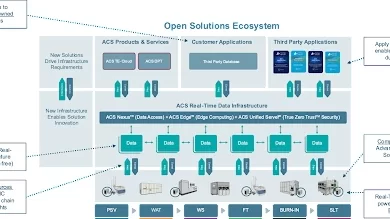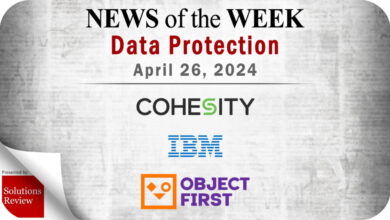Predictive Analytics market is projected to grow at a CAGR

Visiongain has published a new report entitled Predictive Analytics Market Report 2024-2034: Forecasts by Organisation Size (Small & Medium Enterprises (SMEs), Large Enterprises), by Deployment Mode (On-Premises, Cloud-Based, Hybrid Mode), by Industry Vertical (Banking, Financial Services, and Insurance (BFSI), Healthcare, Retail & E-commerce, Other), by Solution Type (Predictive Modelling, Data Mining, Machine Learning Algorithms, Natural Language Processing (NLP), Neural Networks), by Application (Customer Relationship Management (CRM), Sales & Marketing Forecasting, Risk Management & Fraud Detection, Operations Optimisation, Supply Chain Management, Financial Forecasting & Planning) AND Regional and Leading National Market Analysis PLUS Analysis of Leading Companies AND COVID-19 Impact and Recovery Pattern Analysis.
The global predictive analytics market was valued at US$13.69 billion in 2023 and is projected to grow at a CAGR of 21.7% during the forecast period 2024-2034.
Regulatory Compliance and Risk Management: Ensuring Operational Integrity
Predictive analytics is helping organisations manage regulatory compliance and mitigate risks. In highly regulated industries like finance and healthcare, predictive models are used to identify potential compliance issues and ensure adherence to regulatory standards. For example, banks use predictive analytics to detect fraudulent transactions and assess credit risk, thereby complying with anti-money laundering (AML) and know-your-customer (KYC) regulations. In healthcare, predictive analytics helps in identifying patients at risk of developing chronic diseases, ensuring timely intervention and compliance with treatment protocols. By proactively addressing compliance and risk management challenges, businesses can avoid legal penalties and reputational damage, further driving the demand for predictive analytics solutions.
Download Exclusive Sample of Report
https://www.visiongain.com/report/predictive-analytics-market-2024/#download_sampe_div
How has COVID-19 had a significant negative impact on the Predictive Analytics Market?
The COVID-19 pandemic significantly impacted the predictive analytics market, reshaping priorities and accelerating digital transformation across industries. As businesses grappled with unprecedented disruptions and uncertainties, the demand for predictive analytics surged as organizations sought to mitigate risks, optimize operations, and adapt to rapidly changing market dynamics. One notable impact of COVID-19 on the predictive analytics market was the heightened focus on business continuity and resilience. Organizations leveraged predictive analytics to anticipate supply chain disruptions, forecast shifts in consumer behavior, and optimize resource allocation in real-time. For example, retailers used predictive analytics to adjust inventory levels based on demand fluctuations and changing consumer preferences, ensuring continuity of essential goods and services.
Moreover, the pandemic underscored the critical role of predictive analytics in healthcare and life sciences. Healthcare providers and pharmaceutical companies utilized predictive models to forecast hospital capacity, identify high-risk populations, and accelerate drug discovery efforts. Predictive analytics enabled proactive decision-making, such as allocating resources to regions with anticipated surges in COVID-19 cases and prioritizing vaccine distribution. However, the COVID-19 pandemic also presented challenges to the predictive analytics market. The unprecedented nature of the crisis led to data volatility and uncertainty, making it challenging to develop accurate predictive models. Organizations faced difficulties in accessing timely and reliable data, particularly in sectors heavily impacted by lockdowns and restrictions.
How will this Report Benefit you?
Visiongain’s 419-page report provides 131 tables and 206 charts/graphs. Our new study is suitable for anyone requiring commercial, in-depth analyses for the global predictive analytics market, along with detailed segment analysis in the market. Our new study will help you evaluate the overall global and regional market for Predictive Analytics. Get financial analysis of the overall market and different segments including organization size, deployment mode, industry vertical, solution type and application and capture higher market share. We believe that there are strong opportunities in this fast-growing predictive analytics market. See how to use the existing and upcoming opportunities in this market to gain revenue benefits in the near future. Moreover, the report will help you to improve your strategic decision-making, allowing you to frame growth strategies, reinforce the analysis of other market players, and maximise the productivity of the company.
What are the Current Market Drivers?
Integration with Business Intelligence Tools: Enhancing Analytical Capabilities
The integration of predictive analytics with business intelligence (BI) tools is creating more powerful and comprehensive analytics solutions. BI tools like Tableau, Power BI, and Qlik Sense are increasingly incorporating predictive analytics features to provide deeper insights and foresight into business operations. For example, Salesforce’s Einstein Analytics integrates predictive analytics to help sales teams forecast revenue and identify potential leads. This synergy allows businesses to not only understand historical data but also predict future trends and outcomes. The seamless integration of predictive analytics with BI tools enhances decision-making processes, enabling organisations to anticipate changes, mitigate risks, and capitalise on opportunities more effectively.
Improvement in Computational Power and Storage: Accelerating Adoption
Advancements in computational power and storage solutions are making it easier and more cost-effective to implement predictive analytics. The advent of cloud computing has significantly reduced the costs associated with data storage and processing. Cloud platforms like Amazon Web Services (AWS), Microsoft Azure, and Google Cloud provide scalable infrastructure that supports complex predictive analytics workloads. For example, companies can leverage cloud-based machine learning services to build and deploy predictive models without investing in expensive hardware. Additionally, the development of high-performance computing and parallel processing technologies enables faster data analysis, allowing businesses to derive insights in real-time. These technological advancements are democratizing access to predictive analytics, driving its adoption across various industries.
Get Detailed ToC
https://www.visiongain.com/report/predictive-analytics-market-2024/
Where are the Market Opportunities?
Rise of the Internet of Things (IoT): Expanding Data Horizons
The proliferation of IoT devices is generating vast amounts of data that can be analysed using predictive analytics. IoT devices, ranging from smart home appliances to industrial sensors, continuously collect data that offer valuable insights into operations and user behaviours. For instance, in smart cities, IoT sensors collect data on traffic patterns, which is then analysed to optimise traffic flow and reduce congestion. In industrial settings, predictive maintenance models analyse data from machinery to predict failures before they occur, minimising downtime and maintenance costs. The intersection of IoT and predictive analytics is opening new avenues for innovation, efficiency, and cost savings across various sectors, driving the market forward.
Personalisation in Marketing: Transforming Customer Engagement
Predictive analytics is revolutionising marketing by enabling personalised customer experiences. By analysing customer data, businesses can predict individual preferences and tailor marketing campaigns accordingly. For example, Amazon uses predictive analytics to recommend products to users based on their browsing history, purchase patterns, and preferences. This personalised approach not only enhances customer engagement but also boosts conversion rates and sales. Predictive analytics helps marketers identify high-value customers, optimise marketing spend, and improve campaign effectiveness. As consumers increasingly expect personalised interactions, the adoption of predictive analytics in marketing is set to grow, enhancing customer satisfaction and loyalty.
Competitive Landscape
The major players operating in the predictive analytics market are Alteryx, Inc., Domo, Inc., Fair Isaac Corporation, Google LLC, H2O.ai, International Business Machines Corporation, KNIME, Microsoft Corporation, MicroStrategy Incorporated, Oracle Corporation, Salesforce.com, Inc., SAP SE, SAS Institute Inc., Teradata Corporation, The MathWorks, Inc., . These major players operating in this market have adopted various strategies comprising M&A, investment in R&D, collaborations, partnerships, regional business expansion, and new product launch.
Recent Developments
- 27 April 2024, Oracle revealed new capabilities for Oracle Fusion Cloud Customer Experience (CX) that leverage artificial intelligence (AI) to help service agents, sellers, and marketers close deals faster. By automating laborious activities and empowering front office staff to more accurately target, engage, and serve customers, the new AI capabilities will help businesses increase sales more quickly.
- 18 March 2024, The goal of the collaboration expansion between SAP SE and NVIDIA is to enable enterprise clients to leverage data and generative AI more quickly throughout SAP’s cloud solution and application portfolio.
- 27 Feb 2024, The leader in data and AI, SAS, has entered into a new distribution partnership with The Trusted Government IT Solutions Provider®, Carahsoft Technology Corp. As per the agreement, Carahsoft will function as an SAS Public Sector Distributor, enabling US Government agencies to access the company’s analytics, artificial intelligence, and data management products via Carahsoft’s reseller partners, diverse contract vehicles, and government schedules.
To access the data contained in this document please email contactus@visiongain.com. Avoid missing out by staying informed – order our report now.
To find more Visiongain research reports on the IT sector, click on the following links:
Do you have any custom requirements we can help you with? Any need for a specific country, geo region, market segment or specific company information? Contact us today, we can discuss your needs and see how we can help: contactus@visiongain.com
About Visiongain
Visiongain is one of the fastest-growing and most innovative independent market intelligence providers around, the company publishes hundreds of market research reports which it adds to its extensive portfolio each year. These reports offer in-depth analysis across 18 industries worldwide. The reports, which cover 10-year forecasts, are hundreds of pages long, with in-depth market analysis and valuable competitive intelligence data. Visiongain works across a range of vertical markets with a lot of synergies. These markets include automotive, aviation, chemicals, cyber, defence, energy, food & drink, materials, packaging, pharmaceutical and utilities sectors. Our customised and syndicated market research reports offer a bespoke piece of market intelligence customised to your very own business needs.
Contact
Visiongain Reports Limited
Telephone: +44 (0) 20 7336 6100
Email: contactus@visiongain.com
Web: www.visiongain.com


